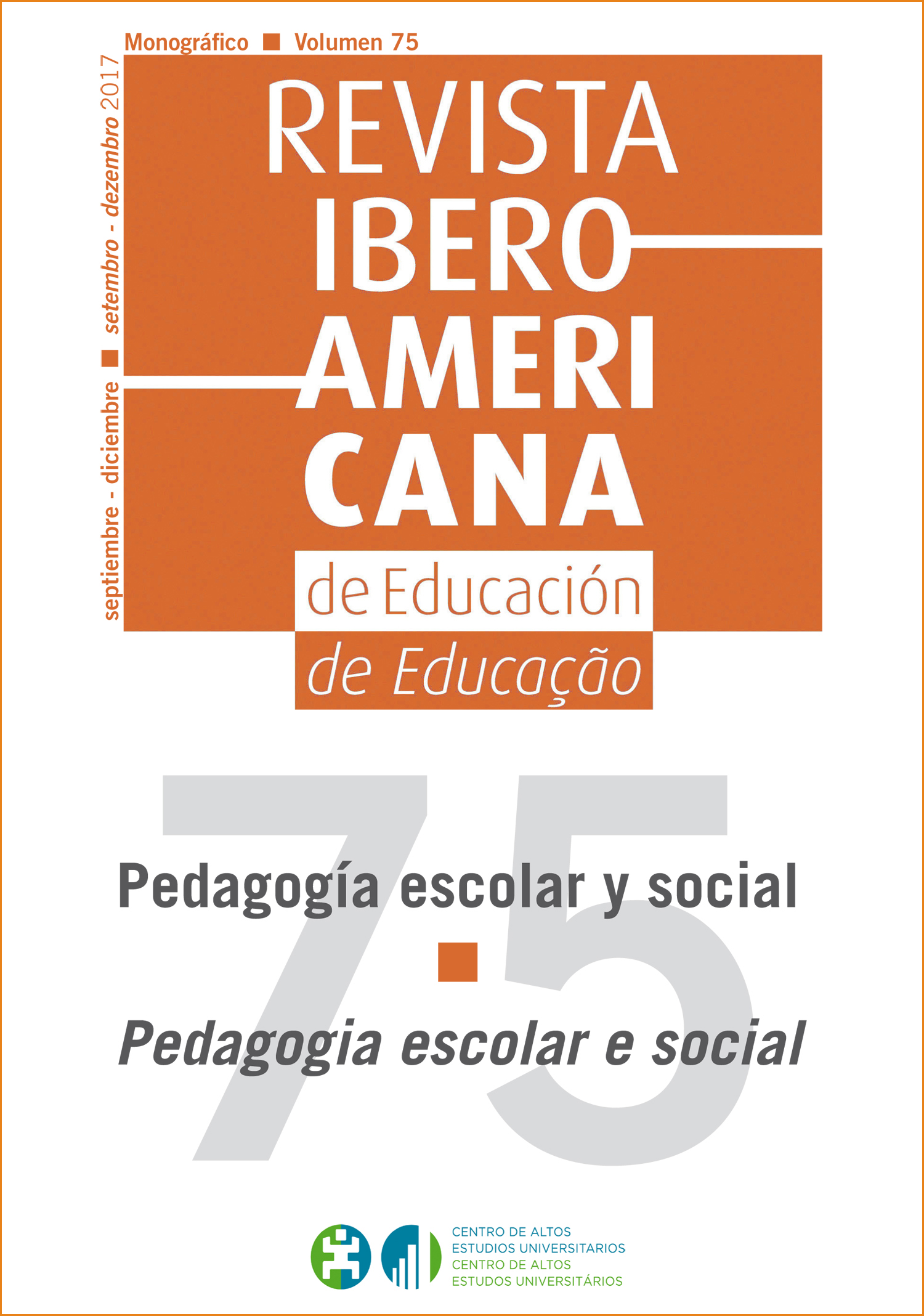Dental hygiene educational program in preschoolers from vulnerable contexts. Parental psychological preparation and the role of teachers
DOI:
https://doi.org/10.35362/rie7501252Keywords:
skills, dental hygiene, preschool, Parents, TeachersAbstract
This study aims to analyze the psychological preparation of parents and the role of educators in the development of children’ dental hygiene habits, through an educational program for preschoolers in contexts of social vulnerability. Participants included 120 parents, with children between four and six years of age, and nine educators belonging to eight Community Child Care Centers (CAIC). The pre-post test design showed that at the end of the program parents presented a decrease in the sense of self-efficacy to support their children in the development of dental hygiene habits, additionally the intention of the behavior was greater than the later performance. Educators showed greater knowledge about cavities and oral health after the program. In addition, they considered the dental clinic, the health promoter and the family as main sources of information on dental hygiene. Educators considered caries and gum disease prevention as the main reasons for maintaining good oral hygiene. Educators did not change their perception of the role that teachers have in the prevention of oral health, which from the beginning was of an active participation. Implications for educational practice are discussed in the light of these results.
Keywords: skills; dental hygiene; preschool; Parents; Teachers
Downloads
References
Bentley, E.M., Ellwood, R.P. y Davies, R.M. (1999). Oral Hygiene: Fluoride ingestion from toothpaste by Young children. British Dental Journal, 186(9), 460-462.
Chalas, R., Maksymiuk, O. y Fajgier, T. (2014). The evaluation of kindergarten teachers’ preparation to promote oral health among children. Polish Journal of Public Health, 124(1), 33-37.
Clarkson, J.E., Young, L., Ramsay, C.R., Bonner, B.C. y Bonetti, D. (2009). How to Influence Patient Oral Hygiene Behavior Effectively. Journal of Dental Research, 88(10), 933-937.
Dempster, M. y Donnelly, M. (2008). Validity of the Perceived Health Competence Scale in a UK primary care setting. Psychology, Health and Medicine, 13(1), 123-127.
Ehizele, A., Chiwuzie, J. y Ofili, A. (2011). Oral health knowledge, attitude and practices among Nigerian primary school teachers. International Journal of Dental Hygiene, 9, 254-260.
Elfriede, K., Ollis, C. y Davies, S. (2013). Habitual Self-Control: A Brief Measure of Persistent Goal Pursuit. European Journal of Personality, 27, 82-95.
Farooqi, F. A., Khabeer, A., Moheet, I. A., Khan, S. Q., Farooq, I. y ArRejaie, A. S. (2015). Prevalence of dental caries in primary and permanent teeth and its relation with tooth brushing habits among school children in Eastern Saudi Arabia. Saudi Medical Journal, 36(6), 737-742.
Finlayson, T., Siefert, K., Ismail, A. y Sohn, W. (2007). Psychosocial factors and early childhood caries among low-income African-American children in Detroit. Community Dentistry and Oral Epidemiology, 35, 439-448.
Freire, A.R., Luiz, F., De Souza, T. y Puppin-Rontanid, R.M. (2012). Influence of family environment on childrens’ oral health: a systematic review. Jornal de Pediatria, 89(2), 116-123.
Gao, X., Chin Man Lo, E., McGrath, C. y Mun Yin Ho, S. (2013) Innovative interventions to promote positive dental health behaviors and prevent dental caries in preschool children: study protocol for a randomized controlled trial. Trials, 14(1), 1-18.
Gokhale, N. y Nuvvula, S. (2016). Influence of socioeconomic and working status of the parents on the incidence of their children’s dental caries. Journal of Natural Science, Biology and Medicine, 7, 127-129.
Hooley, M., Skouteris, H., Biganin, C., Satur, J. y Kilpatrick, N. (2012). Parental influence and the development of dental caries in children aged 0-6 years: A systematic review of the literature. Journal of Dentistry, 40, 873-885.
Ionas, M. y Dăncilă, A. (2017). Dental care awareness among mothers of children from disadvantaged socioeconomic backgrounds in Romania. Public Health and Management, 22(1), 26-29.
Kenney, M.K., Kogan, M.D. y Crall, J.J. (2008). Parental perceptions of dental/oral health among children with and without special health care needs. Ambulatory Pediatrics, 8(5), 312-320.
Maier, R. y Marian, A. (2015). The teacher-parent educational partnership, health promotion program –specific case- dental health. International Conference of Scinetific Paper AFASES 2015, Brasov, 28-30 may.
Matthews, D.J. (2010). Vulnerability related to oral health in early childhood: a concept analysis. Journal of Advanced Nursing, 66(9), 2116-2125.
Naidu, J. y Nandlal, B. (2017) Evaluation of the Effectiveness of a Primary Preventive Dental Health Education Programme Implemented Through School Teachers for Primary School Children in Mysore City. Journal of International Society of Preventive and Community Dentistry, 7, 82-89.
Simratvir, M. (2011). A study to assess the role of teachers in the promotion of oral health in developing countries. Journal of Education and Ethics in Dentistry, 1, 33-36.
Sultan, S., Ain, T.S. y Gowhar, O. (2016). Awareness of mothers regarding oral health of theory children in Kashmir, India. International Journal of Contemporary Medical Research, 3(7), 2454-2458.
Verplanken, B. y Orbell, S. (2003). Reflections on past behavior. A Self-Report Index on Habit Strength. Journal of Applied Social Psychology, 33(6), 1313-1330.
World Health Organization (2003). The world oral health report 2003. Geneva: WHO. 2003 [actualizado 19 Sept 2016].
How to Cite
Downloads
Published
Issue
Section
License
Any authors who publish with this journal accept the following terms:
















